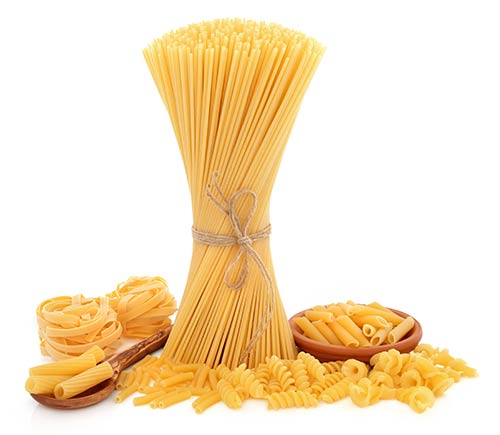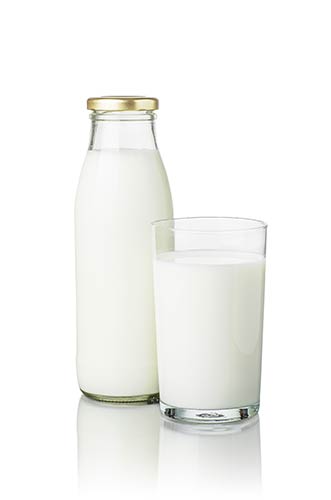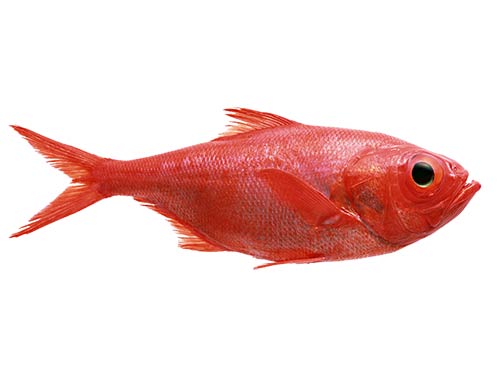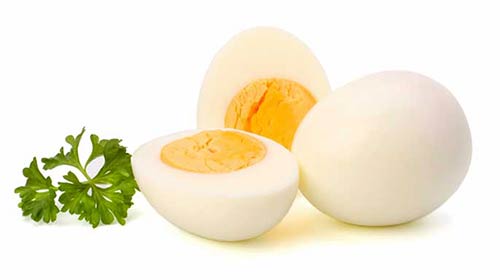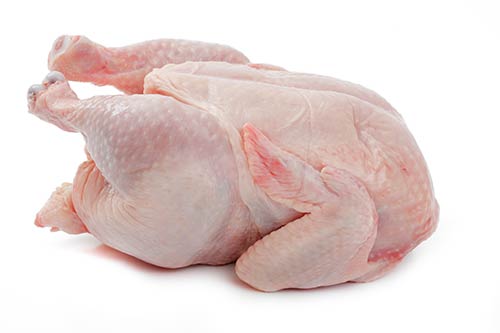computer
An electronic machine that stores information and uses programs to help you find, organize, or change the information
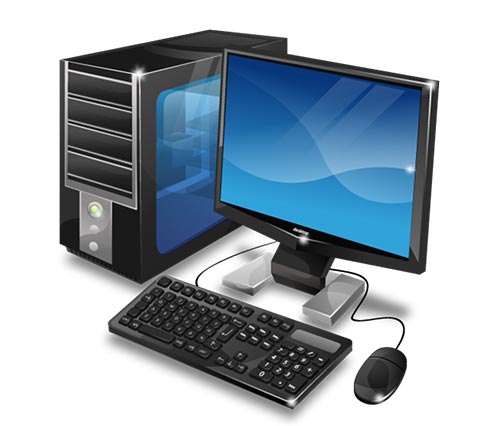
كامپيوتر، رايانه
It's all stored on the computer.
تمام این در کامپیوتر ذخیره شده است.
An electronic machine that stores information and uses programs to help you find, organize, or change the information
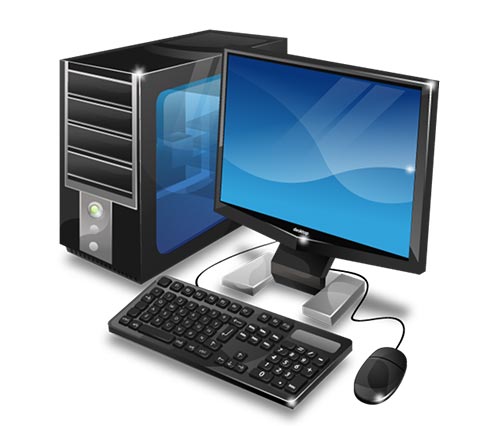
كامپيوتر، رايانه
It's all stored on the computer.
تمام این در کامپیوتر ذخیره شده است.
Oxford Essential Dictionary
computer
noun
a machine that can store and find information, calculate amounts and control other machines:
All the work is done by computer.
He spends a lot of time on the computer, sending emails.
a computer program (= information that tells a computer what to do)
They play computer games every evening.
Longman Dictionary of Contemporary English
computer
com‧put‧er S1 W1 AC /kəmˈpjuːtə $ -ər/ BrE AmE noun [countable]
[Word Family: noun: ↑computer, ↑computing, ↑computerization; verb: ↑computerize]
an electronic machine that stores information and uses programs to help you find, organize, or change the information:
a huge global computer network
the latest computer software
on computer
The information is stored on computer.
by computer
Shoppers can send in their orders by computer and pick up their goods later.
• • •
COLLOCATIONS
■ verbs
▪ use a computer Most people do jobs in which they have to use a computer.
▪ log onto a computer (=start using it by typing a password) Next time you log onto your computer, you will have to use a new password.
▪ log off a computer (=stop using a computer system that requires a password)
▪ switch a computer on/off Always switch off your computer at the end of the day.
▪ start up/boot up a computer (=make it start working)
▪ shut down a computer (=close the programs and stop it working)
▪ restart/reboot a computer (=make it start working again) The problem sometimes disappears if I restart my computer.
▪ program a computer (=give it instructions so that it will do a particular job)
▪ hold/store something on a computer This data is all held on a central computer.
▪ a computer starts up/boots up My computer takes ages to start up in the morning.
▪ a computer crashes (=suddenly stops working)
▪ a computer is down (=is not working)
▪ a computer is up (=is working again after stopping working)
▪ software/a program runs on a computer You’ll need the appropriate software running on your computer.
■ computer + NOUN
▪ a computer system Our office is installing a new computer system.
▪ a computer screen/monitor Make sure your computer screen is at the right height.
▪ a computer keyboard The computer keyboard is shaped to put less strain on your wrists.
▪ a computer network (=a set of computers connected to each other) A virus had infected the entire computer network.
▪ a computer program (=a set of instructions stored inside a computer) At school, we’re learning how to write simple computer programs.
▪ computer software (=computer programs) Microsoft Corp is the world’s largest maker of personal computer software.
▪ computer hardware/equipment (=machines and equipment, not programs) a shop that sells computer equipment
▪ a computer game Kids love playing computer games.
▪ computer graphics (=images created by computers) There’s a massive market for high-speed computer graphics.
▪ computer technology the rapid progress in computer technology
▪ computer science (=the study of computers and what they can do)
▪ the computer industry You can make a lot of money in the computer industry.
▪ a computer company He runs his own computer company.
▪ a computer user Technology now allows computer users to talk to each other over the Internet.
▪ a computer programmer (=someone who writes the instructions a computer uses to do a particular job)
▪ a computer expert You don’t need to be a computer expert to use the programme.
▪ a computer hacker (=someone who tries to break into a computer system)
▪ a computer language (=a system of instructions used to program a computer)
▪ computer data CD ROMs store computer data.
▪ a computer virus (=a program that secretly destroys information stored on computers) Computer viruses do a lot of damage every single day.
▪ a computer error The mistake was caused by a computer error.
• • •
THESAURUS
■ Actions when using a computer
▪ start up/boot up to make a computer start working: I’m having problems starting up my computer.
▪ log on/in to start using a computer system by typing your name and password: He logged on and read his emails.
▪ click on something to press a button on a computer mouse to choose a program, file etc from the screen: When you click on the link, it sends you to the company’s website.
▪ install to add new software to a computer so that the software is ready to be used: All users should install anti-virus software.
▪ download to move information, pictures, or music from the Internet onto your computer: You can download MP3 files.
▪ upload to move information, pictures, or music from your computer to a different computer across the Internet: Sites such as YouTube allow you to upload your own videos.
▪ open to make a file or program ready to use: Open a new file and type in the information.
▪ scroll up/down to move information on a computer screen up or down so that you can read it: Scroll down to read the questions and answers.
▪ enter to type information into a computer: The program requires you to enter a password.
▪ delete to remove information from a computer: I’ve deleted his email. | When you delete a file, it first gets moved to the recycle bin.
▪ cut and paste to remove information from one place and put it in another place: Tutors are looking out for students who cut and paste their essays from the Internet.
▪ save to make a computer keep the work that you have done on it: Make sure you save any work you do before you shut the computer down.
▪ close to stop having a file or program ready to use: To close the window, click on the ‘X’ in the top right-hand corner of the screen.
▪ log off/out to stop using a computer system by giving it particular instructions: I get an error message when I log off.
▪ shut down to make a computer stop working: Employees should shut their computers down at the end of each day.
▪ restart/reboot to make a computer start working again: Wait a few minutes before rebooting your computer.
Oxford Advanced Learner's Dictionary
computer
com·puter AW [computer computers] [kəmˈpjuːtə(r)] [kəmˈpjuːtər] noun
an electronic machine that can store, organize and find information, do calculations and control other machines
• a personal computer
• Our sales information is processed by computer.
• a computer program
• computer software/hardware/graphics
• a computer error
• computer-aided design
see also desktop computer, microcomputer, personal computer, supercomputer
Example Bank:
• A computer model is used to predict forces affecting the aircraft in flight.
• Building a computer has many benefits over buying one.
• Computers can be networked using modems and telephone lines.
• He hacked (into) the school computer with the principal's password.
• It's all stored on the computer.
• It's awful when a virus crashes your computer.
• My computer says that the hard drive is corrupted.
• Such a large sorting operation can take up a lot of computer time.
• The computer stores data in a buffer until the printer can accept it.
• The computers are all down at the moment.
• The computers are all down= not functioning at the moment.
• The data is all held on computer.
• The problem was caused by a computer glitch.
• The software allows you to interface your computer and an OCR reader.
• technicians who fix computers
• the market for home computers
Cambridge Advanced Learner's Dictionary
Cambridge Advanced Learner's Dictionary - 4th Edition
computer / kəmpju.tə r / / -t̬ɚ / noun [ C or U ]
A1 an electronic machine that is used for storing, organizing, and finding words, numbers, and pictures, for doing calculations, and for controlling other machines:
a personal/home computer
All our customer orders are handled by computer.
We've put all our records on computer.
computer software/hardware
computer graphics
a computer program
Word partners for computer
restart / shut down / start up a computer • be connected to / hooked up to a computer • a computer crashes • use a computer • on a computer • by computer • computer equipment / hardware / programs / software • computer literacy
© Cambridge University Press 2013
Collins COBUILD Advanced Learner’s English Dictionary
computer
/kəmpju:tə(r)/
(computers)
Frequency: The word is one of the 1500 most common words in English.
A computer is an electronic machine that can store and deal with large amounts of information.
The data are then fed into a computer...
The car was designed by computer.
N-COUNT: also by/on N
Merriam-Webster's Advanced Learner's Dictionary
computer
com·put·er /kəmˈpjuːtɚ/ noun, pl -ers [count] : an electronic machine that can store and work with large amounts of information
• He works all day on/with a computer.
• a personal/desktop/laptop computer
- often used before another noun
• a computer program/game/virus
• computer software

